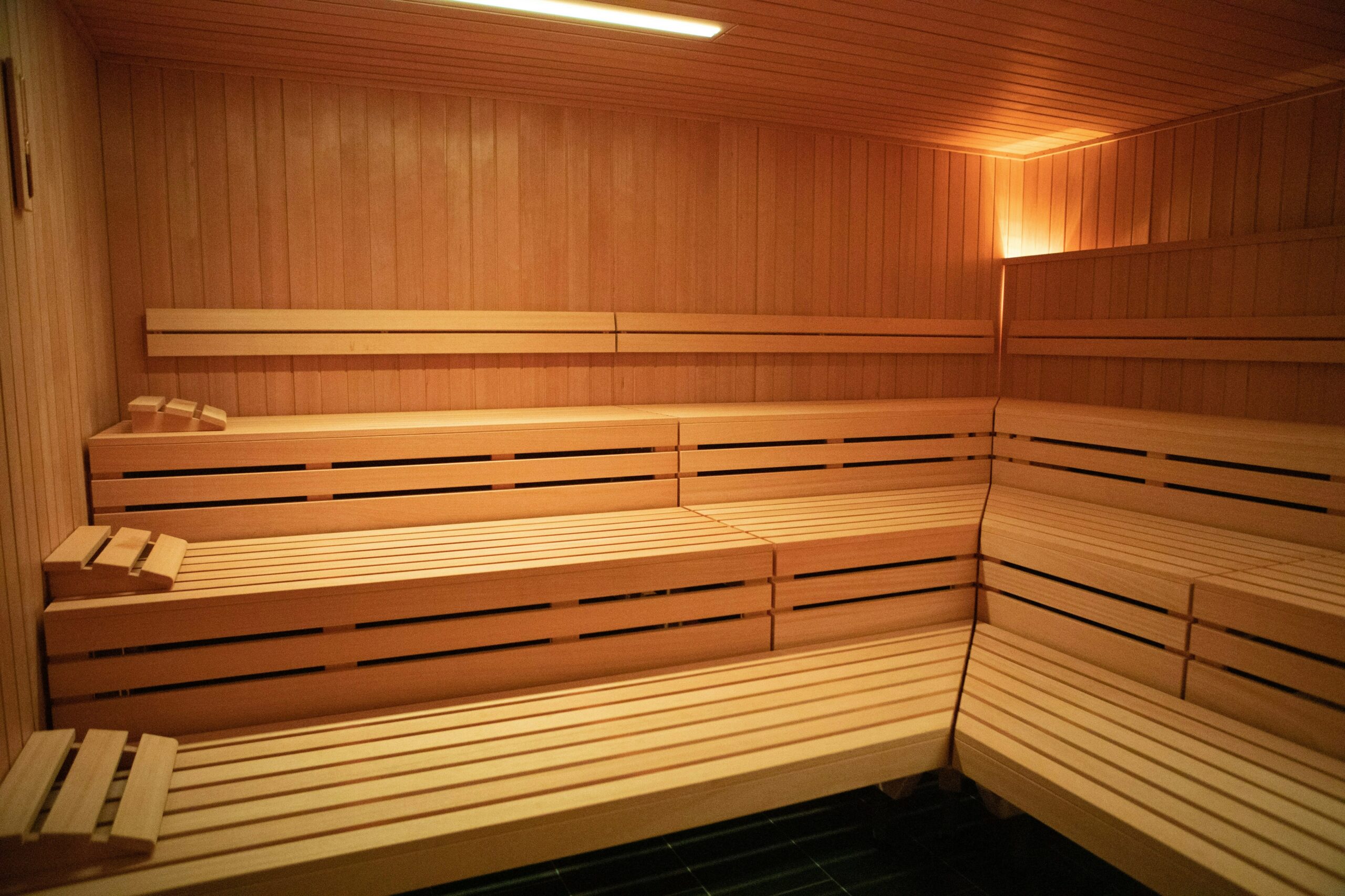Photo by Birk Enwald on Unsplash
Saunas have long been associated with relaxation and detoxification, but the idea that they can aid in weight loss is a common misconception. However, there is some gray area to explore there.
Saunas, typically dry or wet heat rooms, work by increasing your body’s core temperature, which leads to sweating. Many believe that this sweating results in significant weight loss. However, the weight lost in a sauna is primarily water weight, not fat loss. As we’ve discussed before, fat is turned into water (i.e. urine and sweat) and carbon dioxide, but it’s mostly carbon dioxide. Put another way, you breathe out more fat than you sweat out.
Water weight loss occurs because sweating leads to fluid loss from the body. As you sweat, you lose water, which can temporarily decrease your body weight. This is why wrestlers may sit in a sauna (wearing a trash bag!) right before weigh-in or why jacked movie stars will dehydrate themselves a day before filming shirtless scenes. However, this weight loss is not sustainable, as rehydration will quickly restore your body’s fluid balance.
While sitting in a sauna may elevate your heart rate slightly, it does not burn a significant number of calories. Studies have shown that the calorie expenditure during a sauna session is relatively low compared to other forms of exercise. In fact, the calories burned in a sauna are minimal and do not contribute to meaningful weight loss. A 10-minute run or bike ride will burn significantly more calories than sitting in a hot room.
Saunas primarily target the body’s thermoregulatory system, rather than its metabolic processes. Therefore, any weight lost in a sauna is predominantly water weight, not fat loss. To achieve sustainable weight loss, it’s essential to focus on methods that promote calorie burning and fat loss through physical activity and dietary changes. Even with my patients that require clinical intervention (semaglutide and the like), the medication helps with lifestyle adjustments.
As a side note: a quasi-medical belief hints at some “detox” element of saunas. The sweat from a sauna is the same sweat as exercise and that’s because the sweat on our skin is meant to cool our bodies down, not detoxify our bodies– other organs do that (Hi, kidney and liver!).
This is not a indictment against saunas though and I don’t want Big Sauna to come after me.
While saunas may not be effective for weight loss, they offer various other health benefits. Saunas can promote relaxation, reduce stress levels, and improve circulation. Additionally, I find them just generally nice during a spa day or after an intense workout at the gym.
It’s important to recognize that those health benefits are separate from weight loss, though. Enjoying a sauna session can be a part of a holistic approach to well-being, but it should not be relied upon as a primary method for weight management.
Instead of relying on saunas as a weight loss strategy, focus on incorporating regular exercise, maintaining a balanced diet, and adopting healthy lifestyle habits. Aside from those things in your control, you may also need information on family history, genes, hormones, and other factors that contribute to weight loss and weight gain. If you’re unsure what’s right for you and what you can do to help yourself on this journey, please schedule a consultation today.
Thank you and see you in the sauna (maybe), A-Listers!
